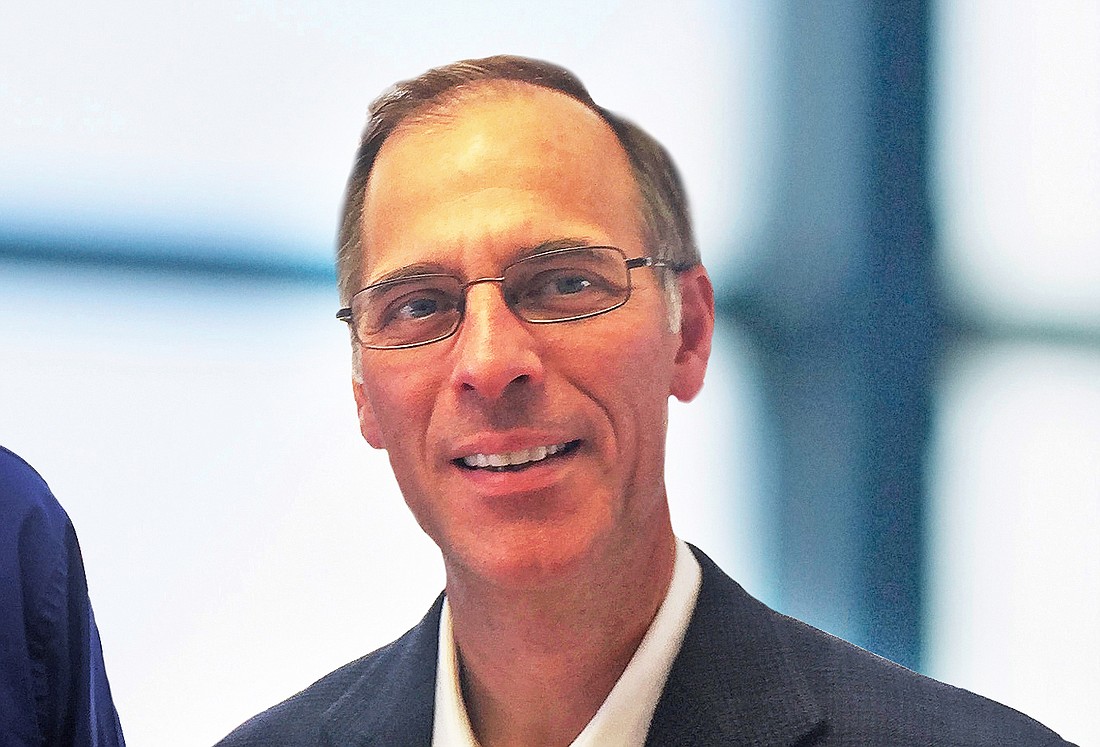
The U.S. economic expansion will be 10 years old next month and if it continues into July, it will become the longest ever, says Mark Zandi, chief economist of Moody’s Analytics.
During a presentation Tuesday to the World Affairs Council of Jacksonville, Zandi said he fully expects the expansion to reach that record length and beyond.
“I think in the next six to 12 months, the outlook is good,” he said.
“Barring the trade war going off the rails, the economy is fundamentally in good shape,” Zandi said at the event at The River Club in Downtown Jacksonville.
The trade war between the U.S. and China has caught everyone’s attention as a potential disruption to the economy.
However, Zandi also is keeping an eye on two other “preconditions” that historically signal the end of an expansion.
One, ironically, is the extremely strong labor market. With unemployment so low, at 3.6% nationally, businesses may have difficulty finding workers to fill openings and inflationary pressures might creep into the economy.
Zandi said the U.S. has seen unemployment rates in the low 3% range only twice before, during World War II and in the early 1950s during the Korean War.
“We are operating, in my mind, beyond full employment,” he said.
“That is symptomatic of an economy that is toward the end of an expansion,” he said. “The clock is starting to tick.”
The other precondition is some type of “imbalance” in the economy that has presaged previous recessions. As an example, Zandi pointed to the housing market collapse beginning in 2007 that led to the last recession and the tech stock equity bubble that helped cause the 2000-2001 recession.
“The question is, what is going to do us in this time?” he said.
Zandi thinks the Federal Reserve Board’s current monetary policy of keeping interest rates steady is “appropriate,” but the Fed needs to be cautious about inflationary pressures and may need to raise rates again.
“The metaphor I like to use is they're flying very close to the sun,” he said.
Zandi is uncertain of the eventual impact of the trade war.
“My working assumption on trade is the president finds a way to end this thing,” he said.
However, the 25% tariffs on goods imported from China will have a major impact on U.S. businesses if it continues.
“You can't navigate around that. It is a game changer,” he said.
Businesses are hesitating to plan capital investments because of the uncertainty on tariffs, he said.
“Capital investment has gone nowhere since this trade war picked up,” he said.
Zandi tries to take a nonpartisan view of economic policy but he does think it’s up to President Trump to offer a solution to China.
“President Xi will never call President Trump. It will never happen,” he said.
The debate over Trump’s “America First” policy on globalization is actually not new, Zandi said. Americans have been debating the U.S. role in global economic policies since the days of Thomas Jefferson and Alexander Hamilton, he said.
“At the end of the day, we as Americans always end in the right place,” he said.
“I think ultimately we will figure it out.”